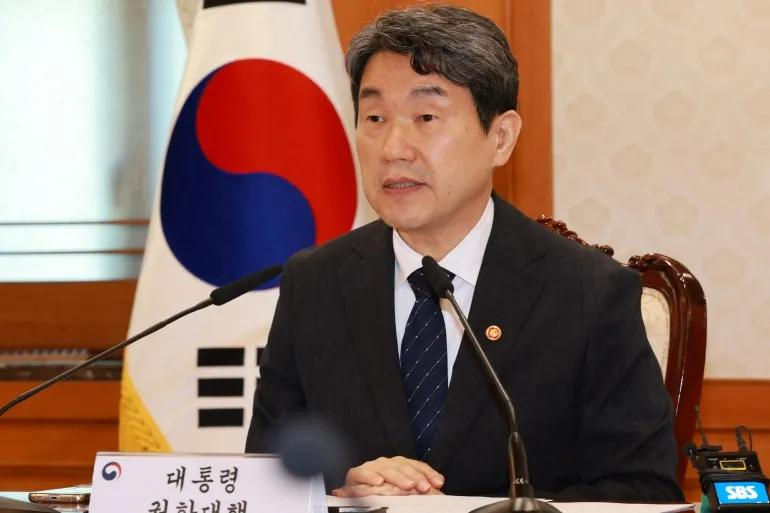South Korea Faces Election Turmoil

South Korea is navigating a period of significant political upheaval as it prepares for a snap presidential election scheduled for June 3, 2025. The nation’s leadership has seen rapid changes, with the appointment of Lee Ju-ho as the third acting president in less than six months. Lee, previously serving as the Education Minister, assumed the role following the resignation of Prime Minister Han Duck-soo, who stepped down to enter the presidential race.
Lee Ju-ho, an economist with a background in labor studies and education reform, has pledged to maintain governmental stability during this transitional period. He has emphasized the importance of an orderly and fair election process, directing the military to elevate its preparedness to the highest level and urging public servants to uphold strict discipline and political neutrality. Lee’s appointment comes at a time when South Korea faces both internal political challenges and external security concerns, including tensions with North Korea.
The political landscape has been further complicated by the candidacy of Han Duck-soo, a seasoned bureaucrat with experience across various administrations. Han’s decision to run has introduced uncertainty into the election, especially as he is expected to align with the conservative People Power Party, which has been in disarray following the impeachment of former President Yoon Suk-yeol. Han has proposed constitutional reforms aimed at reducing executive power and enhancing checks and balances within the government. However, his resignation from the caretaker role to pursue the presidency has drawn criticism from opposition parties, who accuse him of prioritizing personal ambition over national stability.
Adding to the complexity of the upcoming election is the legal situation surrounding Lee Jae-myung, the Democratic Party’s leading candidate. The Supreme Court recently overturned his acquittal on charges related to election law violations, sending the case back to a lower court. If convicted before the election, Lee could be disqualified, significantly impacting the race’s dynamics. Despite these legal challenges, Lee continues to enjoy substantial public support, maintaining a lead in opinion polls.
The backdrop to these developments is the political turmoil initiated by former President Yoon Suk-yeol’s declaration of martial law in December 2024, which led to his impeachment and removal from office. This unprecedented move triggered a series of leadership changes, including the temporary appointments and subsequent resignations or impeachments of acting leaders, culminating in Lee Ju-ho’s current role. The rapid succession of acting presidents has raised concerns about government continuity and the effective management of both domestic and international affairs.
As the election approaches, the South Korean electorate faces a critical decision amidst a climate of political instability and legal uncertainties. The outcome will not only determine the nation’s leadership but also influence its approach to governance, constitutional reforms, and responses to external threats. The interim administration under Lee Ju-ho bears the responsibility of ensuring a transparent and fair electoral process, maintaining public trust, and upholding democratic principles during this pivotal period.











